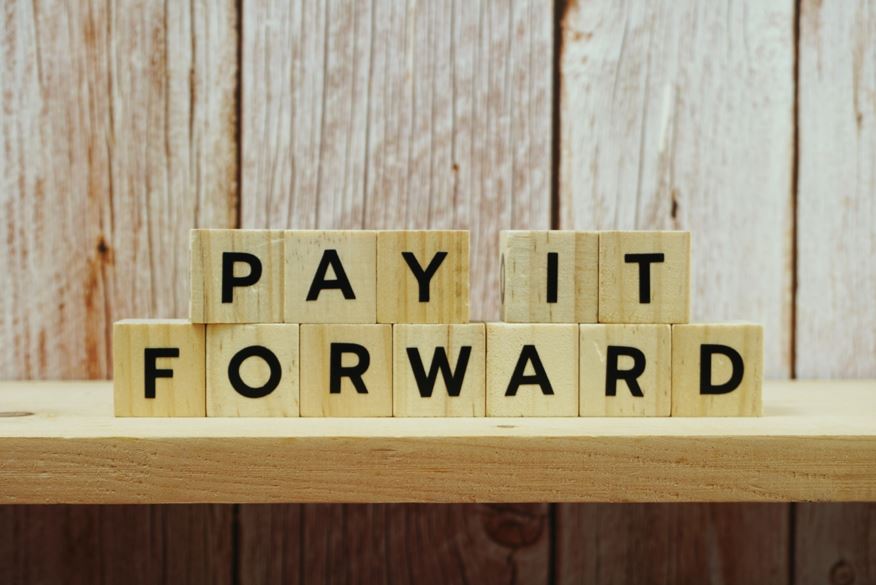David Bolno is a business manager known for working with some of the top talent in Hollywood. As a professional in the LA area, he knows just how hard it can be to get ahead, especially when everyone else is trying to do the same thing. As a respected member of the community, he opens up about how giving back is connected to personal and professional success. He also talks about how philanthropy factors into his everyday life, and why it’s so important for everyone to adopt their own relationship with giving back.
A Lifetime of Seeking
Bolno may have a bachelor’s from Duke and a law degree from Temple University, but his education didn’t stop there. To him, learning means seeking as much information as you can, which has led him to become a proactive person in his day-to-day life. He takes the same approach when he wants to donate his (many) resources to the causes and people that need them the most.
When it comes to giving back to the community, he understands how easy it is to make excuses about why it’s impossible. It’s easy to assume that you don’t have the money or the time to get involved. However, taking the extra steps to look at what’s available can be illuminating. You’ll learn more about what different organizations are doing, and who’s behind the efforts. This research can be rewarding in its own right. Even if you don’t end up choosing a charity immediately, you discover what kinds of issues are facing your community and how other people are taking the time to address them.
He says that everyone has talents that others can benefit from, whether that’s cooking for an event, mentoring kids, or making homemade cards for children in the hospital. There’s also nothing wrong with writing a check to a cause, as long as you know how your money will be used. David Bolno stresses how important it is to have some degree of connection to what you’re doing for a community, otherwise the transaction will be entirely one-sided.
The Art of Giving
There have been numerous studies completed on the benefits of giving back. The very act of thinking about others and taking action can empower people more than they ever imagined. Scrolling through multiple headlines every day can lead us to believe that our world is pure chaos. David Bolno can say with confidence that those who participate in a cause that matters to them are usually less stressed compared to those who don’t.
David Bolno thinks of himself as a leader in life, someone who can look at a situation and see the best way to move forward. He takes pride in solving problems, whether it’s delegating work in the office or helping a friend sort through a career roadblock. David guides people every day as a business manager, showing his clients how they can structure their taxes or plan for their children’s futures. However, once he punches out the proverbial clock, he doesn’t stop adding value. He says that this is the fundamental premise that everyone should consider when they think of philanthropy. By asking yourself how you can add value, you can weave in this philosophy at a granular level.
David Bolno: Putting in the Effort
There’s always a balance that people need to consider when it comes to charitable giving. Jumping in too quickly or with too much gusto can lead to burnout. Taking an entirely hands-off approach can lead to apathy about the organizations you’re supposed to be helping. Bolno encourages people to start wherever they are. Giving back can be done through a formal charity or nonprofit, or it can be as simple as reaching out to an acquaintance or distant relative to see if they could use some help with anything.
David Bolno has more than just financial resources at his fingertips, he has a roster full of high-profile clients who give him an influential network. When he makes offers to help his contacts, they’re more than empty promises. He wants to use his influence to better the world, and sometimes that means connecting people to each other so they can both find answers.
He believes that the suggestion to act locally will always be a guiding light for him when it comes to philanthropy. On a business level, this can mean pivoting your shopping to the local shops in your area. This switch is usually more complex than it sounds, because it can mean spending more money for a sometimes less convenient experience. However, the more people try to engage with entrepreneurs just outside their doorstep, the more opportunities it creates.
For instance, while it would be easier (and probably cheaper) to order everything from Amazon, patronizing a small business instead gives you the chance to talk to a neighbor. If you’re looking for something specific from them, you could ask if they’ve considered offering services or products that would help you (and potentially fellow customers) get what they need. This interaction would simultaneously benefit you and the business owner at the same time.
David Bolno knows that it’s easier than ever to get stuck inside a virtual bubble, one where you can inadvertently the people right outside your door. Giving to causes down the street or around the world are both worthwhile actions, but there’s usually more of a personal connection to the former. Unless you’re able to travel to visit the people or areas you’re helping, it’s easier to remove yourself from the problem. For David Bolno to make a mark in his community, he had to be willing to get out there.
In LA, a city with a severe wealth gap between residents, it’s not hard to see who could use help the most. You don’t have to go very far before you can see how the disparity plays out in the street, and how it’s impacting everyone involved. In other communities and cities, it may take a little more digging to find where you’ll be needed. David Bolno is happy to help in either case, whether the issue comes to him or it’s the other way around.
The Real Impact of What You Do
Charitable giving can be a minefield for many people, and not just because they have too many other obligations at work, school, or home. It’s easy to worry that you’ll be taken advantage of or that the requests will never stop coming. Some people may worry that they’ll even make the situation worse somehow.
Bolno believes that these are reasonable concerns, but he also encourages people to think about the real impact of the work. For instance, mentoring a surly teenager today may seem like a fool’s errand, one that results in little more than dirty looks and indignant scoffs. What people don’t realize in those situations is that they are helping in the long run, even if they can’t see the returns in the short term. The real impact of what you do will ultimately be felt for generations to come. Bolno simply encourages people to step up to the plate as often as possible.




